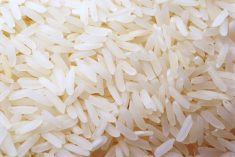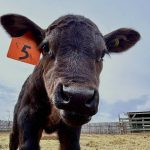One of the intense pleasures of travel is the opportunity to live amongst peoples who have not forgotten the old ways, who still feel their past in the wind, touch it in the stones polished by rain, taste it in the bitter leaves of plants.
So begins the 2009 Massey Lecture series by Wade Davis, an anthropologist, author and Explorer in Chief for the National Geographic Society. In the series, The Wayfinders: Why Ancient Wisdom Matters in the Modern World, Davis eloquently laments the escalating loss of cultural diversity, which is disappearing as quickly as languages are lost.
Read Also

Manitoba Ag Days plans star-studded speaker lineup
Dragons’ Den panellist Arlene Dickinson among speaker series highlight for 2026 Manitoba Ag Days in Brandon, alongside slate of agriculture experts.
According to Davis, half of the 7,000 languages spoken in the world today are not being taught to children, which means they will disappear within the next couple of generations. Each of those languages embodies a unique view of the world. In his words, “it is a flash of the human spirit, the vehicle by which the soul of each particular culture comes into the material world.”
It is doubtful Davis is referring to “agri-culture” in his remarks, but he might well be in an era when older farmers outnumber the young by a ratio of about three to one, and the number of non-farmers in this country outnumbers farmers by about 33 to one.
As each wave of farm kids takes a one-way trip to town, and every time a retiring farmer’s operation gets rolled into a bigger enterprise, we lose more of our indigenous knowledge of how to grow things. Our society is also losing its ability to converse intelligently about farming issues, as many farmers already know.
There are two schools of thought – cultural differences if you like – on this phenomenon and whether it poses a problem. In one corner, is the conventional view that purchased science and technology will fill this growing void in knowledge capital.
Increasingly, farmers have, for the most part, happily given up their right to select and save their own seed in exchange for the yield-enhancing benefits of hybridization and herbicide tolerance. It is all part of a value chain that even determines their marketing options.
Towards that end, the seed industry is becoming increasingly consolidated into a few corporate owners, which are promising to look after the world’s food needs by doubling yields in a few short decades.
On the other side, there are those who are convinced the future of global food security remains reliant on knowledgeable farmers. They point to what they believe is the Archilles heel of the current approach to seed and livestock genetic enhancement – uniformity. In canola, for example, more than 90 per cent of the seed planted by farmers in Western Canada originates in the labs owned by two companies.
This view holds that increasingly volatile weather, a factor of climate change, will require increasing diversity of crop genetics, not the standardization that is required for patenting and varietal registration. If so, farming will be more rather than less complex, with long-term rotations of crops, livestock, herbicides and management techniques.
This will require not only technology, but the knowledge that comes from living on a piece of land and knowing it like the back of your hand. That will require more farmers, not fewer every year, as we see today.
We don’t know which of these views will win out in the end. As with so many other things, it will probably be a bit of both. But one way or another, surely it’s prudent to hedge our bets and promote the notion of keeping a corps of knowledgeable farmers on the land, while nurturing knowledge and conversation within the general population about all things farming.
And that means passing the language of agri-culture on to our children.
This is not about clinging to tradition for tradition’s sake, or saddling our offspring with a life’s path for which they have no passion.
This is about passing along whatever wisdom we have to offer with no strings attached – so that if they dare consider a future in food production, they won’t be afraid to try. And they won’t be afraid to change.
Some of the most innovative farmers on the landscape these days are families that have acquired the courage through knowledge to break with traditional practices and chart a new path for their farming businesses. Some have come from the farm. Others have not.
One of the greatest paybacks we at the Manitoba Co-operator receive from sponsoring the awards for Conservation Families of the Year handed out by the Manitoba Conservation Districts Association is seeing two, and sometimes three generations there to collect their award.
Despite the hard times and gloomy projections, it would seem many farm families in this province remain willing to speak farming to the next generation.
Let’s hope children in both rural and urban communities still find the occasional farm toy beneath the tree this year. And we hope that as families and friends gather, they give thanks for farmers. [email protected]















